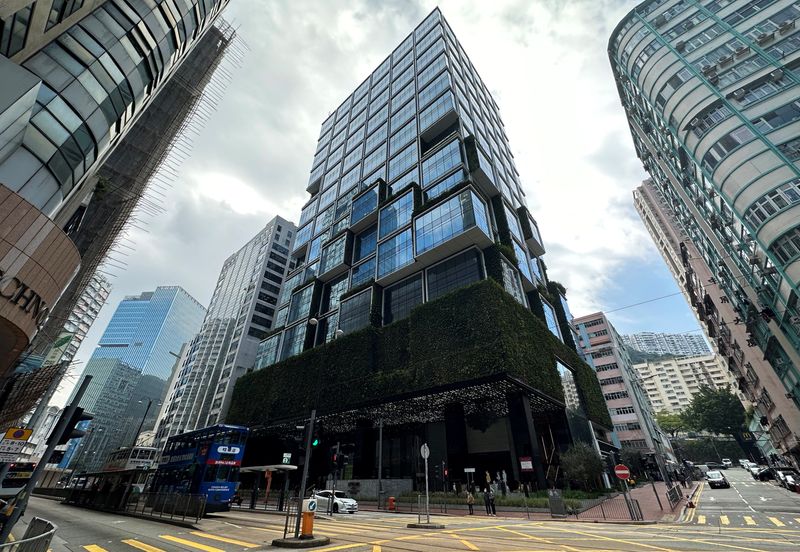By Clare Jim
HONG KONG (Reuters) -Hong Kong property developer New World Development this month secured two onshore loans totalling 1.4 billion yuan ($193 million) as it seeks to further lower funding costs, a source with direct knowledge of the matter said.
The loans, which are a 12-year 1 billion yuan loan and a 15-year 400 million yuan loan, carry an interest rate of 3.1% and 3.15% respectively, according to the person.
New World declined to comment on the loan details.
New World has one of the highest debt ratios in the financial city's property sector, and its de-leveraging plan has been in the spotlight in the past year.
A few of its perpetual and longer-dated bonds are still trading at distressed levels, but many have recovered from lows hit last year.
Banks in Hong Kong have been cutting their loan exposure to the commercial real estate sector due to a plunge in valuations and occupancy rates, and the lending rates are also higher than onshore after a series of rate hikes.
New World's new yuan loans are pledged to the firm's flagship K11 projects in mainland China, said the source, who declined to be named because the information is confidential.
The yuan loan rates compare to the average interest rate of the company's offshore loans at close to 6%.
New World said last month it had increased the proportion of yuan loans to reduce its overall financing costs, including raising two onshore loans totalling 2.6 billion yuan in the first six months.
Including the new yuan loans and other refinancing offshore, the developer has completed HK$10 billion ($1.28 billion) worth of loan arrangements and debt repayments in July, the source said, following $4.5 billion completed in the first half.
New World reported earlier this year its financing costs from continuing operations rose 17% in the six months ended Dec 2023 to HK$2.5 billion due to an increase in interest rates.
'NATURAL HEDGE'
Due to higher dollar interest rates and a weaker yuan, other Hong Kong developers are also increasingly turning to other yuan-denominated channels besides bank lending, including issuing asset-backed securities and panda bonds in mainland China, as well as dim sum bonds in Hong Kong.
"A natural hedge makes sense, because some developers have around 30-40% of their assets in mainland China," said UBS analyst Mark Leung.
"If they still mostly use dollar funding they'd be 'double-hit', which is renminbi depreciation and rising USD interest rates."
Leung expected the trend of doing more yuan fundraising would continue in the longer term as yuan is expected to be under pressure.

($1 = 7.2542 Chinese yuan renminbi)
($1 = 7.8084 Hong Kong dollars)